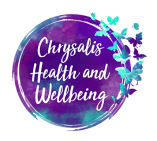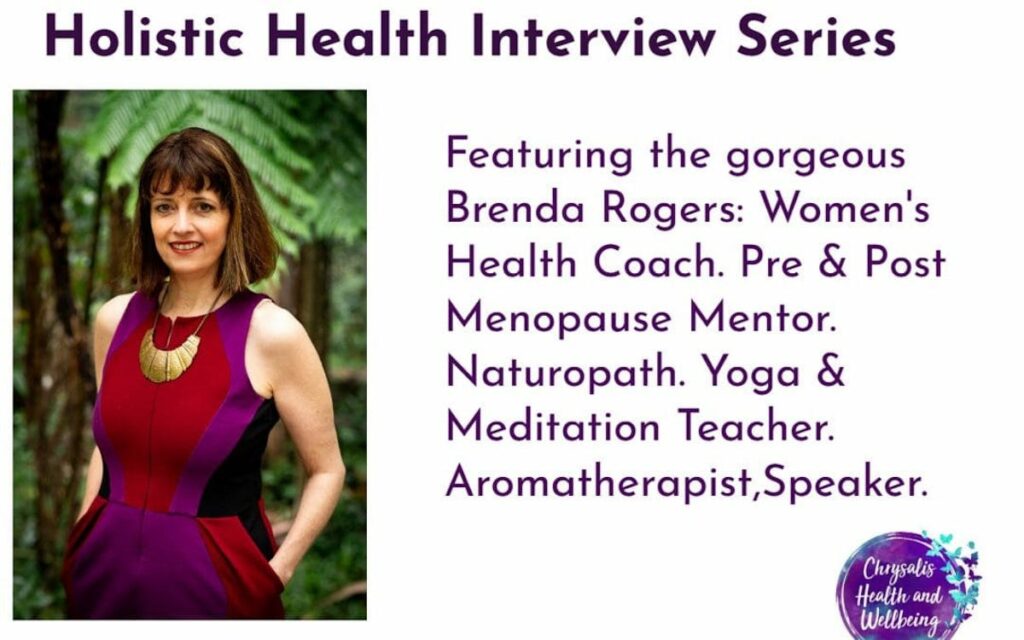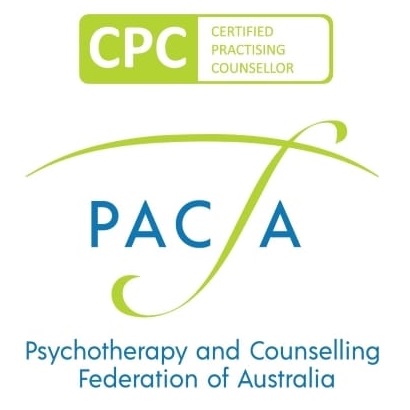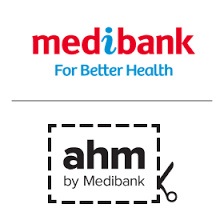Speaking for myself, menopause always seemed like some far-off dreaded life stage that I wouldn’t have to contend with until my 50s. That is until I started experiencing cycle irregularities in my early 40s it suddenly occurred to me that I might be starting menopause.
Since speaking with my GP and doing a bit of research I was horrified to learn a number of things I never knew before. Plus, the women I knew who had been through it never had anything good to say about it – their symptoms all sounded harsh, deeply uncomfortable, and would last for years.
All really quite scary when it all appeared, in a very doomed way, inevitable and unavoidable. As a person who believes, for the most part, we have the ability to be in control of our health and wellbeing, I started wondering whether we really are all destined to experience years of hot-flush, night-sweat hell. Or whether it’s possible, with some pre-emptive self-care and self-reflection, to get through this time with minimal symptoms and hold a more optimistic outlook on this interesting time in a woman’s life.
I am a long-time fan of Dr Christiane Northrup, who confirms this by affirming that menopause can actually be a very powerful time in a woman’s life that can herald in a new and exciting phase of being.
Let’s Get Some Facts
- Menopause is not just a single event. I was not thrilled to learn that this ‘phase’ can take up to around 13 years to complete. Not only that, women go through a preliminary perimenopause, which means that your hormone levels are starting to change well before you notice any real physical changes
- The main hormones involved in the menopause process are oestrogen and progesterone. Progesterone starts to decline during perimenopause, while oestrogen levels tend to remain stable. Women also produce testosterone (just not in the quantities that men produce it), and this may also go into decline
- Medically, it is only after your period has fully ceased for 12 months that you are in menopause
- Perimenopause can start in women as young as their late 30s (in extreme cases), but mostly the onset starts after the age of 45. Surgery to remove the ovaries induces sudden-onset menopause
- Periods don’t just stop. During the transition to menopause, periods may gradually lessen in duration, intensity and flow. They may stop for a number of months, then start again, and this can go on for quite some time
Symptoms of Perimenopause
Dr Northrup explains that declining hormones produce different symptoms. This is not to suggest that we are powerless to stop them rampaging, rather intended as a checklist in case you wonder whether menopause might be upon you.
Once progesterone starts to decline, it can produce symptoms such as:
- Breast tenderness
- Irritability
- Mood swings
- Disturbed sleep
- Weight gain
- PMS
- “Fuzzy” thinking
Low testosterone is associated with:
- Loss of sex drive
- Loss of sensitivity in what were once your erogenous zones
- Decreased sense of wellbeing and energy
- Depression
- Thinning of pubic hair
Oestrogen causes the more widely-known symptoms. It is the last hormone to slow down but is associated with:
- Hot flushes
- Night sweats
- Vaginal dryness, and therefore painful sex
- Decreased energy
- Dizziness
- Headaches
- Confusion
- Urinary incontinence
- Susceptibility to vaginal infections
So, What To Do?
Cheery stuff eh? The good news is that most or all of these symptoms can be minimized or completely avoided, and it doesn’t involve taking HRT for the rest of your life. In fact, HRT is even acknowledged by the medical industry now as being quite dangerous as it increases your risk of cancers, dementia and stroke. Added to that it has been linked to osteoporosis (bone weakening), blood clots, high blood pressure, vaginal bleeding, rashes or acne, and weight gain.
The best way to avoid suffering through the menopause years, is quite simply, prevention. The quality of the food you eat is the most important consideration.
- Your body needs quality, clean nutrients, and by clean I mean free from chemicals and preservatives (as much as is realistically possible). The elements we are most frequently missing from our diets are magnesium and omega 3 essential fatty acids (EFAs). Magnesium has been leached from our soils, so is therefore lacking from our fruits and vegies. Magnesium is involved in too many biological processes to go into here but it is critical to good health. Likewise, omega 3 EFAs have many, many important functions, including proper hormone regulation. I cannot recommend strongly enough a magnesium supplement and krill oil for achieving better hormone regulation
- Exercise in any form is hugely important, and it doesn’t need to take up a lot of time in your day. Also, exercise is by far and away the most effective way of alleviating the effects of depression
- I don’t believe in cutting out food and drink we really enjoy – life is meant for living, right? However, I strongly encourage people to cut back on sugary food. It’s in far too many food products, and is linked with a long, long list of disease and poor health, which puts a lot of stress on our major organs.
- Consider quitting smoking if you are a smoker
- If you enjoy drinking coffee and alcohol – start keeping track of how much you are drinking each week. In excess these substances can upset hormone balance
- Good quality sleep
- Identify stressors in your life and find ways of managing or eliminating them if possible (and not by putting your head in the sand and ignoring them!). Not everyone is into meditation but quiet time where you can feel peaceful and just ‘be’, or practice deep breathing for a certain time each day is really important
- Get sunshine on your skin daily if you can. Our bodies use the sun’s rays to create Vitamin D, which among other things, helps to regulate the uptake of calcium into our bones from our blood
- Finally, one consideration that is often overlooked, and one I always bring up with my clients in counselling sessions: your belief systems.
- What are your beliefs around the aging female form?
- Have you ever stopped to question whether we really are doomed to the shadows after the age of 50?
- Have you seen a photo of Dame Judi Dench or Helen Mirren recently? To me they both exude an energy of feeling very comfortable and content in their skin and with who they are. Do you think that it’s just random lottery who gets to be that way?
- We are bombarded by subtle and not-so-subtle messages about how we can expect to decline and serve no meaningful purpose in society once we reach a certain age bracket. I absolutely and whole-heartedly reject these notions, and I invite you choose differently, or at least question if this really has to be true.
Menopause as opportunity
We have been so conditioned to dread menopause and subliminally accept that our best days are behind us, that it can be almost impossible to see any good from it. I love Dr Northrup’s outlook on menopause as a transition and opportunity for deeper wisdom, rather than a disease that needs ‘curing’.
Menopause marks a passage in a woman’s time of life where there is opportunity to focus on herself (at last!). The time of perimenopause coincides with a time of greater self-reflection and tuning in to self-validation and a deeper desire to meet your own needs rather than seeking answers and approval from external sources.
This also marks a time when old issues and wounds come up for healing, if you are paying attention to what your body is trying to tell you. This can seem daunting and formidable, however, as a counsellor I see huge potential for growth and deeper self-awareness in clients who acknowledge their issues and make a choice to confront them.
There are many different alternative and natural options to manage (peri)menopausal symptoms, which requires its own blog post (it’s on my to-do list), or call me if you feel you would like to discuss any issues in relation to anything raised in this article. I offer a free 20 minute consultation to help you decide if counselling is the right step for you.
Recommended books on this issue
Women’s Bodies, Women’s Wisdom, Dr Christiane Northrup
The Wisdom of Menopause, Dr Christiane Northrup
Mind over Medicine, Dr Lissa Rankin
About Kate
Kate is a counsellor and energy healer based in Sydney’s Hills District. She has identified a common thread amongst trauma sufferers; and that is that they appear to suffer from similar physical symptoms and ailments, along with a history of unresolved trauma of some description. These can have massive and devastating impact in all areas of a person’s life. Kate supports her clients on their healing journey in a holistic sense. This involves helping to process and resolve trauma in the body, help clients choose appropriate nutrition, and address lifestyle issues and old belief patterns that no longer serve them. Clients report feeling calmer, more in control, and with greater self-awareness able to make self-affirming life decisions from their core of inner knowing.






